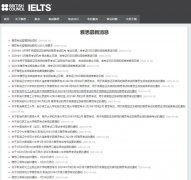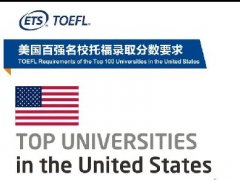下面是网校小微整理的托福作文范文:关于进口食物,供各位参考。
出色范文:
"Food miles" is a concept that is often tossed around in environmentally concerned circles these days. You may have seen celebrity chefs discussing the concept of food miles during their cooking shows, or you may have seen advertisements which make people aware of the food miles issue. Personally, it has both pros and cons.
Maybe local food is more environmentally favorable.The reason usually given for this is that imported food requires a lot of fossil fuel (and produces a lot of carbon emissions) to get it to the market. Locally grown food, however, requires less fossil fuel and therefore puts out less carbon/greenhouse emissions and is better on a global scale. However, the food miles argument has a few flaws to some extent. One popular image that has been buzzed around by the media regarding the "imported food" issue is the idea that the produce is carried by air. Air transport is a very big producer of greenhouse gases (although the aviation industry is working on improving this) and the concept of produce freighted from one side of the world to the other is repellent to many environmentally aware people.'.However, it does enrich the diet of tables inthe local places and promote international transportation.
But, locally produced food is always fresher, which means that it usually has more vitamins and antioxidants in a useable way. They are better for people. Besides, fruits and vegetables that have been grown locally are probably allowed to ripen naturally for longer, rather than being picked under-ripe to reduce spoilage in transit. They may also not undergo certain treatment to increase their shelf life. What's more, locally grown vegetables usually vary according to seasons.What's in season and grown locally is usually cheaper. This is a way to save money and to add some variety into people's diet.
According to traditional Chinese medicine, in一season food has the right "stuff" in them to enhance ones health at that time of the year.So it is much better to have local food mainly and with imported food as supplementary dishes.
在如今的环保圈,“食品里程”的概念被反复触及。你可能看到 一部分名厨在展示厨艺时谈到有关“食品里程“的问题,或者看到广告中晚起人们对泪应话题的关注。个人觉得远途食品有利亦有弊。
也许当地食品更环保 一部分。通常给出的理由是为了送达市场,进口食品须要大量燃料(也就排放大量二氧化碳)。而在当地也种植的食物,消耗燃料少,温室气体(二氧化碳)排放更少。这对全球有益。然而,对于‘食品里程“的争议存在 一部分瑕疵。一个在媒体间沸沸扬扬的流行活题是“远途食品”是飞机运输的。空运会产生大量温室气体(虽然飞行领域在极力改善),而这类由一地起飞运送到另一端的概念一直为众多环保人士所不齿。然而,“远途食品”确实丰富了当地人的餐桌并提高了国际交通业.
可是,当地食品更加新鲜,意味着富含更多能够摄取的维生素和抗氧化剂。那些对人体有益。此外,当地种植的水果和蔬菜是通过长时间自然成熟的,并非为防止运输途中的质变而在未成熟的状态下就被采摘下架。那些还可能未经过特殊处理来提前上架的时间。还有,当地食品都是根据季节生长的。而当季食品通常都比较便宜,这么既省钱还能够为餐桌增添新花样。
据中国传统中药记载,当季食品具有“性味”,在当前食用有益健康。所以,比较好还是以当地食品为主,以进口食品为辅。
 导航
导航










